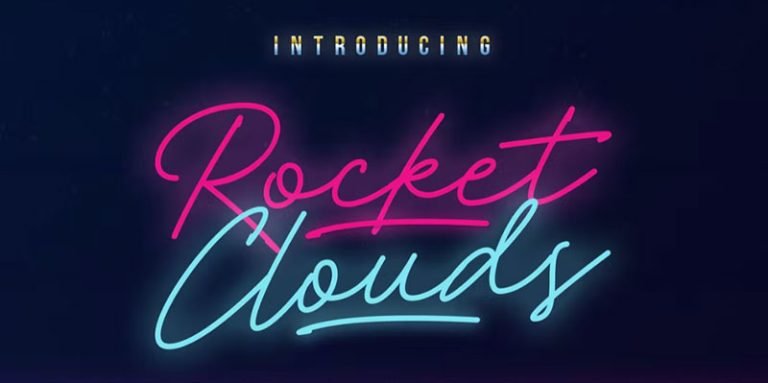
Right now, blogging is one of the most lucrative online business models.
Not only that, but it’s a great way to make money almost on autopilot.
But, how do you go about it if you’re a beginner?
How do you overcome the hurdles and make your way to the top?
In this guide, I’ll tell you how to start a blog and make money the right way.
Let’s get started.
How to Start a Blog and Make Money?
Table of Contents
- 1 How to Start a Blog and Make Money?
- 1.1 Pick a Niche
- 1.2 Go for a Small Niche
- 1.3 Check its Monetization Potential
- 1.4 Find Enough Keywords
- 1.5 Get Your Blog Online
- 1.6 Register Your Domain Name
- 1.7 Host Your Blog
- 1.8 Configure WordPress
- 1.9 Install the Right Theme and Plugins
- 1.10 Create SEO-friendly Blog Posts
- 1.11 Promote Your Blog
- 1.12 Build an Email List
- 2 Wrapping Up
Pick a Niche
There are two things you need to consider while choosing your blogging niche:
- Your interests
- Profitability or potential
If you’re going to write yourself, you need to pick a topic that excites you.
Otherwise, you’ll lose interest over time, and probably end up leaving it mid-way.
However, if you’re going to outsource your blog posts, your interest won’t matter much.
But, even then, it’s a good idea to have at least the basic knowledge of the niche you’re going to work on.
Here’s what you need to look for while hunting a profitable blogging niche.
Go for a Small Niche
Keep in mind that your new blog won’t stand a chance against the established, authority blogs in the industry.
For instance, you can’t expect to outrank WebMD for health-related topics.
The right way would be to go for a smaller section of that niche, say the keto diet.
That way, there would be fewer competitors to compete with, allowing you to rank for your target terms quickly and easily.
Check its Monetization Potential
Before finalizing a niche, make sure it has enough products you can promote as an affiliate.
Also, check to see if it can be monetized using ad networks like Google AdSense.
Other monetization strategies are:
- Online courses
- Photography
- Print on demand
- And more
Find Enough Keywords
Keyword research and niche selection go hand-in-hand.
If a niche doesn’t have enough keywords, working on it would be a waste of time and energy.
Here are the top tools you can use to find highly profitable, low-competition keywords in your niche:
- Google Keyword Planner (Free)
- Ahrefs (Paid)
You can also use Google autosuggest, people also ask box, and the related searches section to gather a list of keywords.
Get Your Blog Online
The best thing about starting a blog is that it requires very little investment.
To get your blog up and running, you only need to invest in a:
- Domain name (around $10 per year)
- Web host (around $20 per year)
Register Your Domain Name
Once you finalize your blogging niche, it’s time to hunt for a suitable domain name.
Here are a few tips:
- Shorter is generally better
- Go for .com (More credible)
- Partial match domains are relatively easier to rank for and are generally more scalable. A particle match domain has your main keyword/niche plus a generic word/phrase. For instance, (gamingxyz.com)
Host Your Blog
The next step is to find an excellent hosting service and get your blog online.
A host is where all your website’s files are stored and managed.
A couple of reliable and cost-effective hosting services are:
- Bluehost
- Namecheap
The customer support of both hosting companies is great, so you can always get their help should anything come up.
Configure WordPress
WordPress is the most popular CMS currently hosting over 455 million websites around the globe.
Once you log into your hosting provider’s dashboard, install the WordPress CMS on your site.
Next, you can configure WordPress and install your theme and a few important plugins.
Install the Right Theme and Plugins
Your WordPress theme decides your blog’s look, navigation, and to some extent, its SEO.
If you don’t have the budget to buy a theme, you can get started with a free one like GeneratePress or Kadence.
GeneratePress has been around for a while, so you’d find a bigger online community around it.
As for the plugins, less is better.
More plugins mean you’re adding extra code to your website, which can slow it down.
You don’t want that, especially because site loading speed is now an official Google ranking factor.
Here is a list of essential WordPress plugins you want to stick to:
- Yoast SEO (For on-page & technical SEO)
- W3 Total Cache
- Schema – All in One Schema
- UpdraftPlus (For backup)
- Sucuri (For security)
- Smush (for image optimization)
Create SEO-friendly Blog Posts
Now, to make money with your blog, you need to publish Google-friendly content.
Here’s how you can create the type of content that can drive enough traffic.
Use Keywords Smartly
You should include your target keyword in the title (H1 heading), and a few times within your content.
But, don’t stuff your blog posts with keywords.
Google’s algorithm is now smart enough to catch and penalize such black-hat SEO practices.
Use Headings
Keep in mind that many of your visitors just want to scan your post.
They won’t read every sentence on it.
Headings make your blog posts easier to skim and scan.
Use Simple Language
The goal of a blog post is to educate and eventually persuade a target audience.
You can’t do that with fancy and difficult-to-understand words.
So, always use simple language to make sure all your readers get your message.
Improve Your CTR (Click-through rate)
Ranking blog posts on the first page of Google is awesome, but you need to get people to click on them, too.
Using your target keyword upfront can help you do that.
Plus, your blog post’s meta description tells users what your web page is all about.
It’s a perfect opportunity to get more people to click on your link.
Promote Your Blog
As soon as you start posting content on your blog, spread the word on social media and online forums.
Create social media profiles or pages of your blog and start sharing your posts.
Don’t worry about followers; they’ll come with time.
Build Backlinks
A backlink is when a website owner links to one of your web pages.
It’s like a vote of confidence that your content is worth sharing.
That’s why backlinks from high-authority sites can work wonders for your organic rankings.
However, it can also be a little overwhelming.
Keep in mind that results don’t typically come quickly in blogging.
As your blog’s authority and traffic grow, people will notice you.
You can then approach fellow bloggers, build professional relationships, and get high-quality, relevant backlinks.
Some tried and true link-building strategies are:
- HARO (help a reporter out)
- Guest posting
- Broken link building
- Niche edits
- Forum backlinks
Build an Email List
You don’t have to rely on organic search engine traffic to make money with your blog.
Email marketing can also be a source of high-quality traffic.
But first, you need to build an email list, which can take time.
The good thing is your email list is an asset you can leverage any time you want.
For instance, let’s say you have a limited-time offer you want to communicate with your audience.
You could just send an email to your list and generate quick results, without having to wait for search engine rankings.
Here are a few effective list-building strategies you might find helpful:
- Facebook ads landing page
- Opt-in form on blog posts
- A freebie for the email address
- Gated content
- Social media
Wrapping Up
There’s no limit to how much you can earn as a blogger. But, your decisions during every stage of your blogging journey will determine your success.
For instance, it’s crucial that you pick the right niche.
Decisions like using black-hat SEO tactics just because they temporarily work can get your blog penalized for good.
Plus, know that SEO takes time to work, but if you remain patient, it can make you rich.





